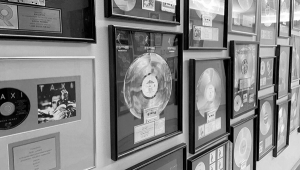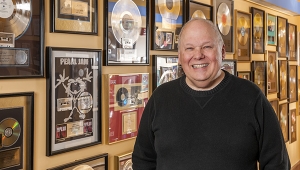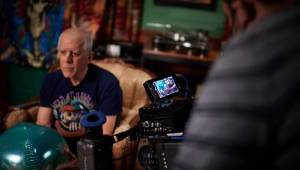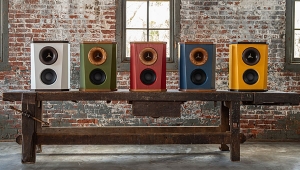| Columns Retired Columns & Blogs |
Tony Federici: Accurate in the USA Page 5
Federici: Okay, I'm going to ask you a question: Do you agree that, in the overwhelming majority of cases, the components that this end of the audio industry produces are clearly superior to what the mass-market companies make?
Atkinson: Yes.
Federici: I wish Stereophile would get that message out more. Because this industry is kept small by reviews in magazines like yours, where this level of product is compared with this level of product. You forget that all the products that are being compared are of high level. When was the last time that Stereophile actually put in print something like: "Look. No matter what you read in a review—we think the top end is a little like this and the bottom end is a little like this—any of these products, with all the flaws we talk about, is far superior to what you're going to buy if you go into the mass-market store."
That's the message. We keep walking around the same circle rather than all of us saying, "Wait a minute. It doesn't matter whether you buy my product or one of my 'other American competitors' ' products. As long as you buy something of this level versus the mass-market level, you're way ahead of the game."
You can't transmit this message via the media. What I'm talking about is just astronomically expensive—I mean, who are the only [American companies] advertising in Newsweek? It's really only Bose. You have to be at the half-billion-dollar level in order to be able to afford that level of media.
It needs to be targeted. It would be good if the independent dealers who are selling this level of audio equipment had some sort of reprint, whatever you wish to call it, that clearly explains that this level is far superior to the $250 receiver level—not just in sound, but in build and everything else. For when that uninitiated customer comes in and freaks because there's no brand in the store that he knows the name of, the dealer can hand him something like that.
You can only do it one customer at a time. But there is an army of independent retailers out there that can do it. And gradually things can change.
Atkinson: Why has that army of retailers so far not succeeded in spreading the message to any large extent?
Federici: Part of it is that these are people who in most cases genuinely love audio. That's why they're in this industry. Not so much for the dollars. So their marketing skills may not be as good as the mass-market retailer's marketing skills. That's number one.
But number two, whenever a retailer hands out a review reprint of my product, or of somebody else's product, of any product, it's always of this product versus X versus Y, at a price, let's say, of a few thousand dollars. And the customer reads that this one was better in this arena, that one was better in that arena, and they're reading about flaws. Because that's what your magazine and the other specialist magazines are about. But when they look at a $250 receiver, they can't find any flaws mentioned in Consumer Reports. Why should they risk spending all this money on a high-end audio component, when for $250 they're "safe?"
So while we've grown this industry using magazines and reviews, at the same time we've frightened off the uninitiated customer. They're spending all this money and they're getting all these imperfections? "I'll go spend $250 and I'm safe."
Atkinson: But even if we said that an Aragon amplifier was one hundred times better than a $250 receiver, it doesn't matter—the person whose expectations are met by something at the $250 price point won't stretch up to $2000 for the Aragon...
Federici: They may not. But I think there are a number who would. You said that this business has become—how can we call it?—legitimized. The reason for that is that there were a number of people, and there still are a number of people, who will spend the money.
- Log in or register to post comments




































